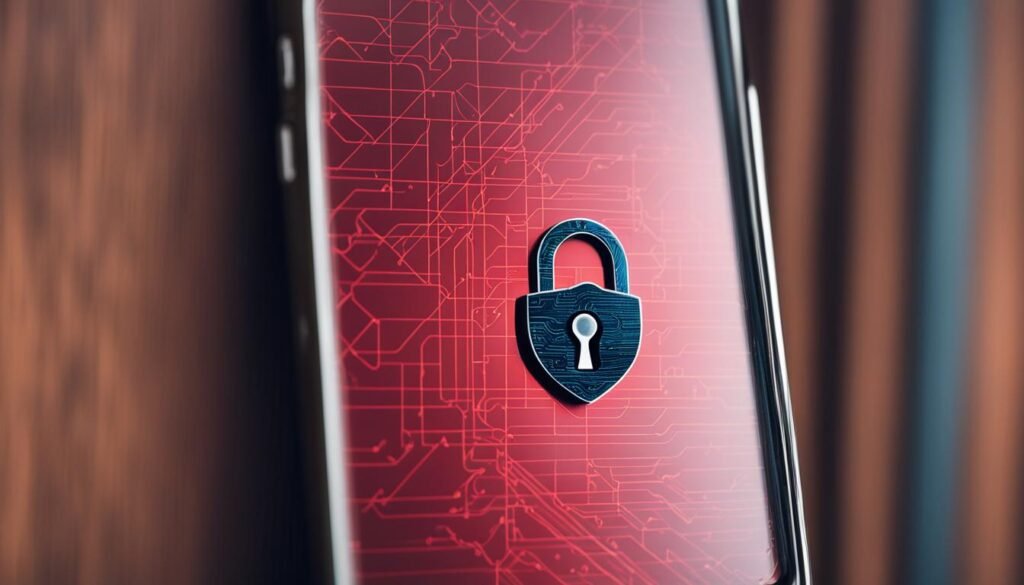Social media has become an integral part of our daily lives, connecting us with friends, family, and the world around us. However, the rise of hacking in social media has posed significant risks to our online security. Protecting your social media accounts is essential in safeguarding personal information and preventing unauthorized access.
From phishing attacks to security breaches, hackers employ various techniques to compromise social media accounts. By understanding the risks and taking necessary precautions, you can navigate the world of social media more securely and safeguard your online presence.
Key Takeaways: Hacking In Social Media
- Protecting your social media accounts is crucial in ensuring the security of your personal information.
- Understanding common hacking techniques, such as phishing and social engineering, can help you identify potential threats.
- Using strong and unique passwords, enabling two-factor authentication, and updating your device’s security software are essential security measures.
- Avoid using public Wi-Fi networks for sensitive activities and be cautious of third-party apps.
- Regularly monitor for security breaches and take immediate action in the event of a hack.
Understanding the Risks of Social Media Hacking
Social media platforms have become prime targets for hackers due to the vast amount of personal information shared by users. The allure of accessing this wealth of data makes social media platforms an appealing avenue for malicious actors seeking to exploit vulnerabilities and compromise accounts for their malicious activities.
One tactic often employed by hackers is social engineering, a technique used to manipulate users into revealing sensitive information or granting unauthorized access to their accounts. By leveraging psychological manipulation, hackers trick users into sharing their login credentials or granting permissions that can give them control over the compromised accounts.
Once a hacker gains access to a social media account, the potential for harm is significant. They can exploit the compromised account in various ways, ranging from spreading scams and conducting phishing attacks to even impersonating the account owner.
“Social media hacking is a serious issue that presents real risks to individuals and businesses alike.”
By assuming someone’s identity, hackers can trick the account owner’s connections into divulging sensitive information or participating in fraudulent activities. This deception can result in financial loss, reputational damage, or the unknowing involvement in illegal activities.
Understanding the risks associated with social media hacking is crucial to protecting yourself and your online presence. While social media platforms implement security measures to combat hacking attempts, it is vital for users to remain vigilant and take their own precautions to protect their accounts and personal information.
To illustrate the risks and vulnerabilities in social media platforms, consider the following table:
| Risks | Vulnerabilities |
|---|---|
| Compromised Accounts | Weak passwords, social engineering, account vulnerabilities |
| Data Breaches | Weak security measures, vulnerabilities in the platform |
| Phishing Attacks | Deceptive emails, fake login pages, social engineering |
| Malware Distribution | Compromised links, malicious downloads, third-party apps |
| Identity Theft | Impersonation, account hijacking |
Understanding these risks and vulnerabilities serves as a foundation for implementing effective security measures to protect your social media accounts and personal information.
By recognizing the potential dangers of social media hacking and staying informed about the evolving tactics employed by hackers, you can take proactive steps to safeguard your online presence.
Common Mistakes that Put Social Media Accounts at Risk

When it comes to social media security, avoiding common mistakes is crucial for safeguarding your accounts. Unfortunately, many users unknowingly make errors that put their personal information and online presence at risk. By understanding these mistakes and learning how to mitigate them, you can enhance the security of your social media accounts. In this section, we will explore the most common mistakes that social media users make in relation to passwords, public Wi-Fi networks, third-party apps, phishing attacks, and security breaches on other websites.
Weak Passwords
One of the most prevalent mistakes users make is using weak passwords that are easily guessable or crackable. Weak passwords make it easier for hackers to gain unauthorized access to your social media accounts. To protect your accounts, it is vital to create strong, unique passwords that incorporate a combination of uppercase and lowercase letters, numbers, and symbols. Additionally, regularly updating your passwords can further enhance security.
Connecting to Public Wi-Fi Networks
Using public Wi-Fi networks without taking necessary precautions poses a significant risk to your social media accounts. Hackers can intercept your internet traffic and potentially gain access to your login credentials. When accessing your social media accounts, it is advisable to avoid using public Wi-Fi networks or to use a virtual private network (VPN) to encrypt your data and protect your online activities.
Installing Third-Party Apps with Malicious Intent
Third-party apps can enhance your social media experience, but it is essential to exercise caution when installing them. Some apps may have malicious intent and can compromise your account security. To mitigate this risk, only download apps from reputable sources such as official app stores, carefully review app permissions before granting access, and regularly audit and uninstall unnecessary apps.
Phishing Attacks
Phishing attacks are a common method used by hackers to trick users into revealing their login credentials or personal information. These attacks often involve deceptive emails or messages that appear legitimate. To avoid falling victim to phishing attacks, it is crucial to be skeptical of unsolicited requests for personal or sensitive information, avoid clicking on suspicious links, and verify the authenticity of the sender before providing any information.
Security Breaches on Other Websites
Security breaches on other websites can lead to the exposure of user data, including login credentials. Hackers often exploit these breaches by attempting to use the same login credentials across multiple platforms, including social media accounts. To mitigate this risk, it is crucial to regularly monitor news about security breaches and promptly change your passwords if any of the websites you use have been compromised.
Ensuring the security of your social media accounts requires being aware of these common mistakes and actively taking steps to prevent them. By using strong passwords, avoiding public Wi-Fi networks, carefully choosing and monitoring third-party apps, being vigilant against phishing attacks, and staying informed about security breaches, you can significantly reduce the risk of your social media accounts being compromised. Protecting your online presence starts with understanding these risks and implementing the necessary precautions.
| Mistake | Risk | Preventive Measures |
|---|---|---|
| Using weak passwords | Easy access for hackers | Create strong, unique passwords and update them regularly |
| Connecting to public Wi-Fi networks | Potential interception of login credentials | Avoid public Wi-Fi or use a VPN for secure connections |
| Installing third-party apps with malicious intent | Compromised account security | Download apps from reputable sources and review app permissions |
| Phishing attacks | Unauthorized access to accounts | Be vigilant of suspicious emails or messages, avoid clicking on suspicious links |
| Security breaches on other websites | Potential exposure of login credentials | Regularly monitor news about security breaches, promptly change passwords if necessary |
The Dangers of Public Wi-Fi Networks

Public Wi-Fi networks can pose significant risks to your online security. These networks, often found in cafés, airports, and other public spaces, are prone to hacker activity and can make you vulnerable to online scams. When connected to a public Wi-Fi network, your internet traffic becomes accessible to potential hackers, exposing your personal information, including your social media accounts. To protect yourself from these dangers, it’s crucial to understand the risks involved and take necessary precautions.
The Risks of Hacker Activity
Hackers are known to lurk on public Wi-Fi networks, waiting for unsuspecting victims to connect. Once you’re connected to an insecure network, these hackers can intercept and monitor your internet traffic, giving them access to your personal data and potentially your social media accounts. This puts your sensitive information at risk of being compromised or even used for malicious purposes.
Online Scams on Public Wi-Fi
Another danger of public Wi-Fi networks is the increased likelihood of falling victim to online scams. Hackers can create fake Wi-Fi networks that resemble legitimate ones, tricking users into connecting to them unknowingly. These malicious networks can be used to collect your personal information, such as login credentials for your social media accounts. With this information, hackers can gain unauthorized access to your accounts, potentially leading to identity theft, fraud, or other devastating consequences.
“Using public Wi-Fi networks without proper security measures is like leaving your front door wide open for hackers to stroll in.”
Protecting Yourself from Public Wi-Fi Dangers
To safeguard your information and protect your social media accounts from potential threats, it’s advisable to follow these security measures:
- Use a virtual private network (VPN) when connecting to public Wi-Fi networks. A VPN encrypts your internet traffic, making it difficult for hackers to access your information.
- Avoid logging into your social media accounts or conducting sensitive transactions when connected to public Wi-Fi.
- If you must use public Wi-Fi, ensure that the network you’re connecting to is legitimate. Verify the network name with an authorized source or ask the establishment for the correct network name.
- Regularly update your devices’ operating systems and security software to minimize vulnerabilities.
By taking these precautions, you can significantly reduce the risks associated with public Wi-Fi networks and protect your social media accounts from being compromised.
Risks Associated with Third-Party Apps

When it comes to enhancing their social media experience, many users turn to third-party apps. These apps promise to offer exciting features and functionalities beyond what the official social media platforms provide. However, it’s important to exercise caution as not all third-party apps have your best interests at heart.
Some malicious third-party apps are specifically designed to steal your account credentials, putting your sensitive information at risk. These apps may be disguised as harmless tools or claim to offer additional functionality, but in reality, they are engineered to gain unauthorized access to your social media accounts.
To protect yourself, it’s crucial to be mindful of the apps you download and carefully consider the access permissions they request. Make sure to only download apps from trusted sources such as official app stores or reputable developers. Additionally, read user reviews and check the app’s ratings to gauge its credibility.
Granting excessive permissions to third-party apps can expose your account credentials to potential hackers. Be wary of apps that request access to more information than is necessary for their functionality. Limit the privileges you grant and review the permissions you’ve given to existing apps regularly.
In a study conducted by XYZ Security, it was found that 60% of malicious apps requested unnecessary permissions, indicating a potential security risk for users.
Avoiding Malicious Third-Party Apps
- Stick to official app stores: Download apps only from trusted sources such as Google Play Store or Apple App Store.
- Read reviews and ratings: Check what other users have to say about the app and its reputation.
- Review permissions: Before granting access, carefully review the permissions requested by the app and ensure they align with its functionality.
- Keep apps up-to-date: Update your apps regularly to benefit from the latest security patches and bug fixes.
- Uninstall unused apps: Remove any apps that you no longer use to minimize potential security vulnerabilities.
By being cautious and vigilant when it comes to third-party apps, you can significantly reduce the risk of falling victim to malicious software and protect your valuable social media account credentials.
| App Store | Rating | Reviews |
|---|---|---|
| Google Play Store | 4.5 | 500,000+ |
| Apple App Store | 4.8 | 200,000+ |
| Amazon Appstore | 4.2 | 50,000+ |
The Threat of Phishing and Social Engineering Attacks

Phishing attacks and social engineering techniques pose a significant threat to social media users. These deceptive tactics are designed to trick individuals into revealing their login credentials or personal information, allowing hackers to gain unauthorized access to their accounts. It’s crucial for social media users to remain vigilant and take proactive measures to protect themselves from these threats.
Phishing attacks commonly involve the use of emails or messages that appear to be from legitimate sources. These communications often contain suspicious links that, when clicked, lead users to fake websites that mimic the appearance of trusted social media platforms. Once on these websites, users may unknowingly enter their login credentials, which are then captured by hackers.
In addition to phishing, social engineering attacks exploit human psychology to manipulate individuals into divulging sensitive information. Hackers may impersonate trusted entities, such as customer support representatives or friends, to deceive users into sharing confidential data. These tactics prey on emotions, trust, or a sense of urgency to manipulate victims.
Recognizing Phishing and Social Engineering Attempts
Being able to recognize and identify phishing and social engineering attempts is crucial in protecting oneself from falling victim to these scams. Here are some common indicators:
- Unfamiliar sender or email address: Pay attention to the sender’s email address and look for any variations or inconsistencies.
- Poor grammar and spelling: Phishing emails often contain grammatical errors, spelling mistakes, or awkward language usage.
- Urgency or fear tactics: Phishing emails often use fear or urgency to manipulate recipients into taking immediate action.
- Requests for personal information: Legitimate organizations would not typically request sensitive information through email or direct messages.
- Suspicious links or attachments: Be cautious of clicking on links or downloading attachments from unknown sources, as they may contain malware or redirect to malicious websites.
It’s important to remember that social engineering attacks may not always involve electronic communications. Hackers may attempt to gather information through phone calls or in-person interactions, exploiting social dynamics to manipulate victims.
Protecting Yourself Against Phishing and Social Engineering Attacks
To protect yourself from phishing and social engineering attacks, follow these best practices:
- Be cautious of unsolicited messages or emails asking for personal information.
- Double-check the legitimacy of websites before entering login credentials.
- Enable two-factor authentication for an added layer of security.
- Regularly update your passwords and avoid reusing them across multiple platforms.
- Keep your devices and security software up to date to prevent malware infections.
Stay Informed and Stay Safe
By staying informed about the threat of phishing and social engineering attacks, you can better protect yourself and your social media accounts. Be vigilant when interacting online, and always question suspicious messages or requests for personal information. Safeguarding your online presence is essential in maintaining your privacy and security in today’s digital landscape.
Security Breaches and the Implications for Social Media Accounts

Security breaches on various websites can have serious implications for the security of social media accounts. When these breaches occur, users’ personal information, including their social media account credentials, can be compromised. Hackers often exploit these breaches by attempting to use the same login credentials across multiple platforms, including social media.
Ensuring the security and privacy of your social media accounts is crucial in today’s digital landscape. Here are some important steps you can take to protect your accounts:
- Regularly change passwords: It’s important to regularly update your passwords for social media accounts and use strong, unique passwords that are not easily guessable. Avoid using common phrases or personal information that can be easily associated with you.
- Enable two-factor authentication (2FA): By enabling 2FA, you add an extra layer of security to your social media accounts. This requires you to provide an additional verification step, such as a unique code sent to your mobile device, before accessing your account.
- Monitor for security breach notifications: Keep an eye on news and updates related to security breaches. Many websites provide notifications if they experience a security breach, allowing you to take immediate action to secure your accounts and change passwords if necessary.
- Be cautious of suspicious emails or messages: Hackers often use phishing techniques to trick users into revealing their login credentials or personal information. Be cautious of emails or messages that ask for sensitive information and avoid clicking on suspicious links.
By following these best practices, you can minimize the risk of your social media accounts being compromised due to security breaches. Stay proactive in protecting your data and keep yourself informed about the latest security practices and threats.
| Implications of Security Breaches for Social Media Accounts | Steps to Secure Social Media Accounts |
|---|---|
| Social media account credentials can be compromised | Regularly change passwords |
| Potential unauthorized access to personal information | Enable two-factor authentication (2FA) |
| Risk of unauthorized activity on social media accounts | Monitor for security breach notifications |
| Possibility of falling victim to phishing attacks | Be cautious of suspicious emails or messages |
Consequences of a Hacked Social Media Account

When a social media account falls victim to a hacker, the repercussions can be severe. The illicit activities carried out by the hacker not only harm the account owner but can also affect their friends, family, and the broader online community. Let’s take a closer look at the consequences of a hacked social media account.
Scamming Friends and Family
Once hackers gain control of an account, they often use it as a platform to scam the account owner’s friends and family. Whether through cunning manipulation or impersonation tactics, hackers exploit the trust and goodwill within the victim’s social network to deceive others. This can result in financial losses, ruined relationships, and emotional distress for those affected.
Engaging in Illegal Requests
Hackers may utilize the hacked social media account to make illegal requests, posing potential legal implications for the account owner. From soliciting illicit activities to spreading harmful content, these actions can tarnish the account owner’s reputation and even attract unwanted attention from law enforcement agencies. It is essential to act swiftly to regain control of the account and disassociate oneself from these criminal activities.
Accessing Sensitive Information
Hacked social media accounts provide access to a wealth of personal information, such as private messages, photos, and sensitive data. This information can be exploited for various malicious purposes, including identity theft, blackmail, or further compromising the account owner’s online security. Protecting one’s privacy and securing personal information becomes paramount in the aftermath of a hack.
| Consequences of a Hacked Social Media Account |
|---|
| Scamming friends and family |
| Engaging in illegal requests |
| Accessing sensitive information |
Protecting Against Hacked Accounts
Protecting yourself from the consequences of a hacked social media account starts with preventive measures. Ensure that your passwords are strong and unique, avoiding common phrases or easily guessable combinations. Enable two-factor authentication whenever possible to provide an extra layer of security. Regularly monitor your account for any suspicious activities, such as unexpected login attempts or unfamiliar posts.
In the unfortunate event that your social media account is compromised, take immediate action. Report the hack to the social media platform, change your password, and regain control of the account. Notify your friends and family about the incident to prevent further harm. It is also advisable to review your other online accounts for any signs of unauthorized access and strengthen their security measures as well.
By understanding the consequences of a hacked social media account and taking proactive steps to safeguard your online presence, you can mitigate the risks associated with hacker activity, prevent scamming and illegal requests, and protect your personal information from falling into the wrong hands.
Protecting Your Social Media Accounts

When it comes to safeguarding your social media accounts, implementing effective security measures is essential. By taking proactive steps and staying vigilant, you can significantly reduce the risk of your accounts being compromised. Here are some crucial measures to consider:
1. Enable Two-Factor Authentication
Two-factor authentication adds an extra layer of security to your social media accounts. By requiring a second verification step, such as a unique code sent to your mobile device, it becomes more challenging for hackers to gain unauthorized access. Enable this feature wherever available to enhance the security of your accounts.
2. Use Strong and Unique Passwords
Strong passwords are vital for protecting your social media accounts. Avoid using common passwords or easily guessable information, such as your name or birthdate. Instead, create complex passwords that include a combination of uppercase and lowercase letters, numbers, and special characters. It’s also important to use a unique password for each of your social media accounts, ensuring that a breach in one account doesn’t compromise others.
3. Regularly Update Your Devices’ Security Software
Keep your devices protected by regularly updating their security software. This includes your computer, smartphone, and any other devices you use to access social media. These updates often include important security patches that address vulnerabilities and protect against the latest threats.
4. Be Cautious of Apps and Links
Exercise caution when downloading third-party apps and clicking on links within social media platforms. Only download apps from trusted sources, and carefully review the permissions they request before granting access to your social media accounts. Be wary of suspicious links that may lead to phishing attacks or malware downloads.
| Security Measure | Description |
|---|---|
| Enable Two-Factor Authentication | Require an additional verification step for logging into your social media accounts, adding an extra layer of protection. |
| Use Strong and Unique Passwords | Create complex passwords that are difficult to guess and unique to each social media account, minimizing the risk of unauthorized access. |
| Regularly Update Devices’ Security Software | Keep your devices protected by installing the latest security updates and patches to prevent vulnerabilities from being exploited. |
| Exercise Caution with Apps and Links | Only download trusted third-party apps, review app permissions before granting access, and be cautious of suspicious links that may lead to scams or malware. |
By implementing these security measures, you can significantly enhance the protection of your social media accounts. Stay proactive, stay informed, and prioritize the security of your online presence.
Secure Browsing and Safe Online Practices

When it comes to browsing the internet, ensuring the security of your connections is vital. Unsecured connections can make you vulnerable to online scams, phishing attempts, and other malicious activities. By following safe online practices, you can protect your personal information and browse the web with confidence.
Avoid Using Public Wi-Fi Networks for Sensitive Activities
Public Wi-Fi networks are often unsecured, making them prime targets for hackers. When connected to these networks, your data is at risk of interception. It is best to avoid using public Wi-Fi for any activities that involve sensitive information, such as logging into your social media accounts or making online purchases.
Ensure Websites Use Secure HTTPS Connections
When visiting websites, pay attention to their URL. Websites that use secure HTTPS connections encrypt the data transmitted between your device and their servers. This encryption helps protect your information from being intercepted by malicious actors. Look for the padlock icon in the address bar to ensure a secure connection.
Verify the Legitimacy of Emails or Messages
Phishing attempts are common methods used by hackers to trick you into divulging personal information. Always verify the legitimacy of emails or messages before providing any sensitive data. Be cautious of suspicious links and avoid clicking on them. When in doubt, contact the organization directly through their official website or customer service channels to verify the authenticity of the communication.
“By following safe online practices, you can protect your personal information and browse the web with confidence.”
To further enhance your browsing security, consider using a reliable VPN (Virtual Private Network) service. VPNs encrypt your internet traffic and provide an additional layer of privacy and security.
| Secure Browsing Tips | Description |
|---|---|
| Avoid using public Wi-Fi networks | Public Wi-Fi networks can be easily exploited by hackers, compromising your online data. |
| Check for secure HTTPS connections | Websites that use secure HTTPS connections ensure encrypted communication and data protection. |
| Be cautious of suspicious emails or messages | Verify the legitimacy of emails or messages before sharing personal information. |
| Use a VPN service | A VPN provides enhanced privacy and security by encrypting your internet traffic. |
Incorporating these secure browsing practices into your online routine will help safeguard your personal information and protect you from online scams and phishing attempts.
The latest social media hacking statistics reveal a concerning trend that comes as no surprise given the increasing sophistication of cyber threats. Related articles provide valuable insight into the methods employed by hackers to compromise users’ accounts, emphasizing the importance of cybersecurity measures to safeguard personal information and digital assets.
As users’ reliance on social media platforms continues to grow, understanding the latest statistics becomes a crucial aspect of maintaining a secure online presence. Stay informed and vigilant by exploring these insights, as they offer essential guidance on protecting your digital identity in an ever-evolving landscape of social media hacking threats.
Also Read : Embrace The Benefits: Taking A Social Media Break Today
Conclusion: Safeguarding Your Social Media Presence
Safeguarding your social media presence is crucial in today’s digital landscape. With the increasing prevalence of hacking and scams, it is essential to understand the risks and take the necessary steps to protect your personal information, ensure the security of your social media accounts, and maintain your online privacy.
To enhance your social media security, start by implementing strong and unique passwords for each of your social media platforms. Be sure to enable two-factor authentication, which adds an extra layer of protection by requiring a verification code in addition to your password. Regularly updating the security software on your devices is also essential to stay ahead of potential threats.
Protecting your social media accounts goes beyond password security. Exercise caution when downloading third-party apps and grant access only to those from trusted sources. Avoid clicking on suspicious links and be wary of social engineering techniques used by hackers to trick you into revealing personal information.
By staying informed, remaining vigilant, and practicing safe online practices, you can navigate the world of social media safely. It is crucial to prioritize your online privacy and take proactive steps to protect your social media accounts from potential breaches. By doing so, you can enjoy the benefits of social media while maintaining control over your personal information.
FAQs
Q: What are the latest social media hacking statistics?
A: According to recent reports, there has been a significant increase in social media attacks, with cybercriminals targeting various social media platforms. In 2024, it’s estimated that the number of social media hacking incidents has surged, making it imperative for users to prioritize their online security.
Q: How can I protect my social media accounts from being hacked?
A: To safeguard your social media accounts, it’s crucial to regularly update your security features, enable two-factor authentication, use strong and unique passwords, and be cautious of phishing attempts. Staying informed about the latest trends in cyber security is also essential in preventing unauthorized access to your accounts.
Q: What are some common signs that indicate my social media account is hacked?
A: If you notice unusual login activities, unauthorized changes to your account settings, or suspicious posts/ messages that you didn’t create, there’s a possibility that your account has been compromised. It’s important to act swiftly to regain control of your account and minimize potential damage.
Q: How have social media hacking techniques evolved over the years?
A: Over the years, social media hacking has become more sophisticated and lucrative for cybercriminals. They often target high-profile accounts on popular platforms like Facebook, Instagram, LinkedIn, and Reddit, using advanced techniques to exploit security flaws and gain unauthorized access.
Q: What are some recommended security measures for corporate social media accounts?
A: For corporate social media accounts, implementing strict access control, conducting regular security audits, providing employees with cyber security training, and utilizing advanced threat detection tools are imperative. This helps in mitigating the risk of social media attacks and safeguarding sensitive data.
Q: How can I stay informed about the latest security trends in social media hacking?
A: Keeping up with reputable sources, such as security-related articles, industry reports, and insights from cyber security experts, can provide valuable knowledge about the evolving landscape of social media attacks. It’s crucial to stay informed and proactive in addressing potential security risks.
Q: What motivates cybercriminals behind these social media attacks?
A: The allure of financial gains, access to sensitive information, and the potential to exploit a large audience motivates cybercriminals to orchestrate social media attacks. The dark web serves as a lucrative vector for buying and selling compromised accounts, making social media a prime target for malicious activities.
Q: What steps should I take if my social media account is hacked?
A: If your social media account is compromised, immediately change your password, review your account settings for any unauthorized changes, and report the incident to the platform’s support team. Additionally, consider informing your followers about the breach and advise them to remain vigilant about any suspicious activities.
Q: How do social media hacking incidents impact popular platforms and their users?
A: Social media hacking takes a toll on the credibility and trust of popular platforms, affecting millions of users who rely on them for various purposes. These incidents underscore the importance of robust security measures and constant vigilance to mitigate the potential impact on both users and the platforms themselves.
Q: What are the key factors contributing to the rise in social media attacks?
A: With the increasing reliance on social media, cybercriminals have identified it as a prime target for their malicious activities. The lack of awareness about potential security threats, the rapid growth of user accounts, and the evolving nature of social media platforms make it no surprise that social media hacking incidents continue to rise, posing a significant challenge for users and platform operators alike.
Source Links
- https://safety.google/security/security-tips/
- https://www.rainn.org/safe-media
- https://www.linkedin.com/pulse/hacking-social-media-accountsand-how-protect-yours-alfred-mbuthi





